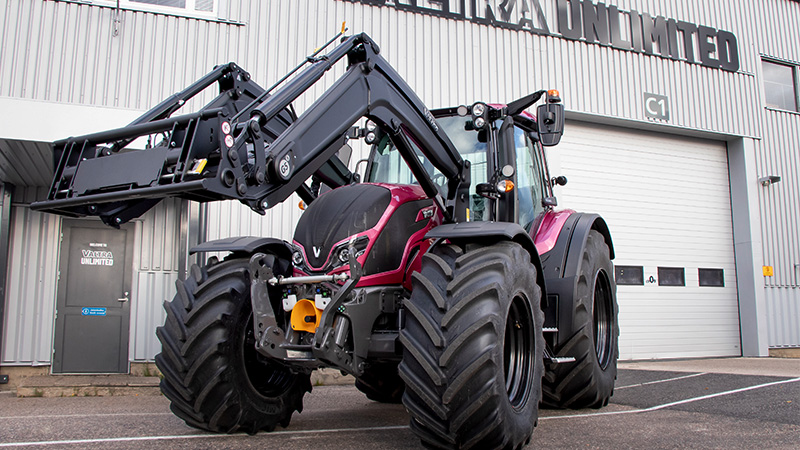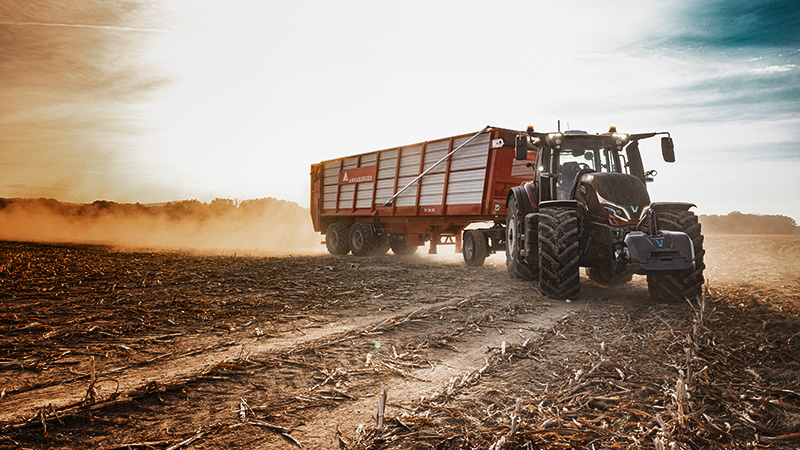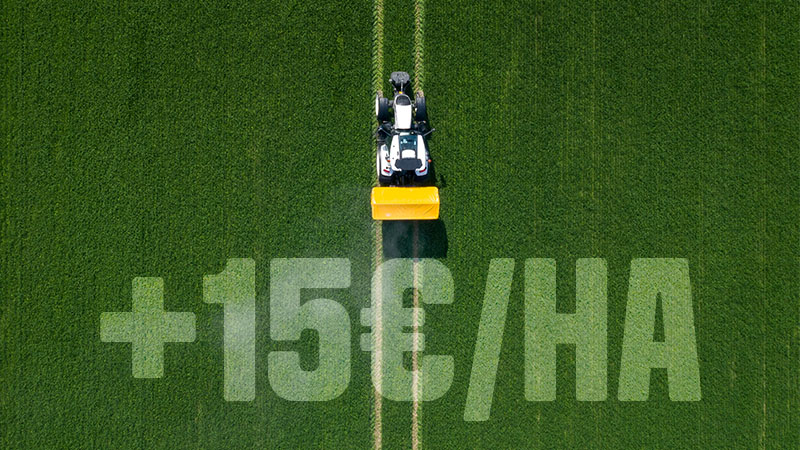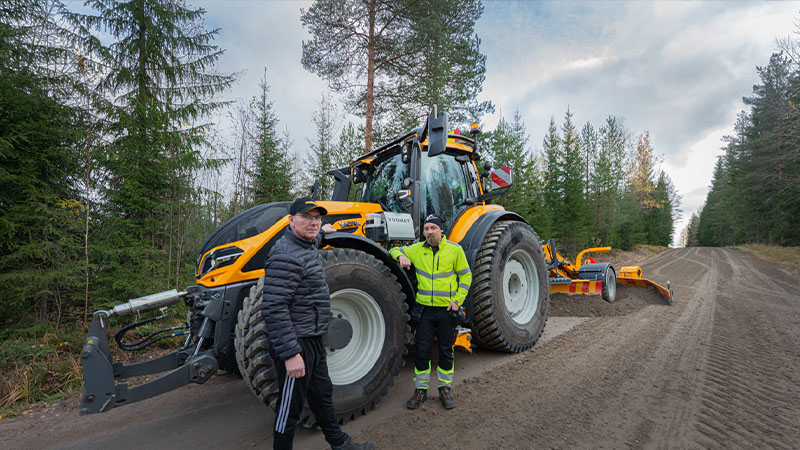In this blog, we take a look at some current trends and thoughts on how the agriculture machinery and supply sector can assist farmers to make the transition to more sustainable practices. We look at trends in alternative fuels, smart farming technologies, and sustainable finance, and how it takes an ecosystem approach from everyone to ensure farmers have the right tools now and in the future to maintain profitability while improving sustainability.
Profitability supports sustainability
The sustainability investments of farms and the entire food chain must be profitable. If they are not, farmers and businesses cannot afford to make such investments. On the other hand, if the investments are profitable, then all the players in the industry will benefit from them.
Sustainably grown produce often requires investment in the latest technology. In many places governments and local policy makers are supporting this transition with grants and schemes. However, this is not always the case, and often the farmer still needs to raise funds. On the other hand, such technology can lower input and fuel costs for farmers. Pressure from legislation, investors, and consumers encourages farmers to be more sustainable. However, if adopting such practices makes farming less profitable, then farms will not be able to continue farming. At AgriVenture Finland 2023, this idea was summed up in the speeches of Vice President, Marketing, Valtra, Mikko Lehikoinen and echoed by several decision-makers with the words “No green, if red”.
Manufacturers and suppliers working together to make farming more profitable.
AgriVenture 2023 organised at the Jamk Institute of Bioeconomy in Saarijärvi on 7-8 June, attracted around 250 researchers, business leaders, students, start-ups and financiers from Finland and abroad. The aim of the event was to connect people interested in the digitalisation of agriculture and the food industry, sustainable development and new business ideas. The event was also attended by several financiers who were able to offer several tens of millions of euros in financing to bioeconomy and technology start-up companies.
Valtra organised the Valtra Sustainability Days as part of the AgriVenture event and held talks and discussions around supporting net zero food production.
Climate change impacts farmers
Farmers have often received unfair criticism in the climate and environment debate. However, agriculture and forestry are two very important sectors for carbon sequestration. Agriculture and forestry together with the food industry should be seen as an opportunity rather than a problem. Climate and environmental issues specifically impact farmers, who make their living directly from the natural environment and have a good understanding of what is happening in the surrounding nature. During the Valtra Sustainability Days farmer Markus Eerola explained how his advanced smart farming tools have helped him discover that due to the small parcel size of his fields on his farm in southern Finland, conventional farming would not be profitable for him. However, through careful analysis, he concluded that organic farming would make the farm profitable.
Finding the right solutions to help farmers is key to ensuring profitability while increasing sustainability in an uncertain future climate. “If the climate warms as predicted, the yields of various grains will decrease worldwide by approximately 11 to 28 percent. Climate change therefore has a major impact on farmers. AGCO already offers many different solutions for reducing carbon emissions, both technical and related to financing, for example. We want to help farmers with these technologies and other means to progress quickly and widely,” said Louisa Parker-Smith, Director, Global Sustainability, at AGCO.
Mikko Lehikoinen, Vice President, of Marketing, at Valtra EME, emphasised that Valtra has already done a lot to reduce the environmental footprint of manufacturing and using tractors, but it is possible to do much more, especially by means of cooperation.
“We have already taken many different measures at our factory and in our other operations. For example, all the electricity and thermal energy we use is renewable, all waste is sorted and recycled, we only fill new tractors with renewable diesel at the factory, and so on. We will focus to work on environmental issues, but we will increasingly involve our partners to help farmers to be sustainable the way they want,” Lehikoinen said. This ecosystem approach of manufacturers and suppliers working together means not only sustainably producing machinery but also making it financially accessible to the farmer.
Not one big but many small solutions
It is clear there is no single solution to environmental and profitability challenges, but these issues should be addressed together and from multiple perspectives. For example, when it comes to sustainable future fuels for tractors, a one-size-fits-all approach is not appropriate. “All alternative fuels have their pros and cons. Biogas can be produced on the farm itself, but the production equipment is quite expensive and the gas tank requires a lot of space in the tractor. Hydrogen is an excellent fuel, but its distribution is difficult and the distribution infrastructure does not yet exist. Biodiesel is already a good option, but its availability is limited now and will continue to be in the future. Electric batteries could also power machinery, but a high-horsepower tractor would require more than 10 tonnes of batteries, and charging on the farm would take days. In the future, farmers will have choices depending on their circumstances, the use of the tractor, and availability of different fuels,” summed up Jarno Ratia, Director of Global Product Management – Engines, at AGCO Power.
One key to maintaining profitability and increasing sustainability is offering farmers the choice in how best to improve their sustainability. For example, a single manufacturer may offer different power sources in the future, such as electricity for small tractors, hydrogen and biogas for medium-sized tractors, and renewable diesel for large tractors. Ethanol could be an alternative regionally, for example in Brazil. A good example of this open and flexible approach is AGCO Power's new Core engine series which is optimised for several different fuels, as well as being suitable for hybrid use.
One key to maintaining profitability and increasing sustainability is offering farmers the choice in how best to improve their sustainability. For example, a single manufacturer may offer different power sources in the future, such as electricity for small tractors, hydrogen and biogas for medium-sized tractors, and renewable diesel for large tractors. Ethanol could be an alternative regionally, for example in Brazil. A good example of this open and flexible approach is AGCO Power's new Core engine series which is optimised for several different fuels, as well as being suitable for hybrid use.
How to transition to more sustainable farming while maintaining profitability.
Investing in greener and smarter technology is often a matter of money. Transition is not easy for the farmers, but financing can enable this change. At the Valtra Sustainability Days, AGCO Finance's Jannis Kordt talked about sustainable finance.
“Through our partner network, including the European Investment Bank, AGCO Finance is able to offer more affordable financing for farmers wanting to make the sustainable transition and join programmes such as the Climate and Nature programme by our partners Lantmännen and Valtra in Sweden,” said Kordt.
Putting good ideas into practice
At the Valtra Sustainability Days, there was a broad consensus among the participants that sustainable development will become a common practice in the food industry when it is seen as a profitable business activity. The development of new ideas must be financed, companies must make them available to customers, and their use must be profitable for farmers.
For many farmers, the route to more sustainable and profitable farming will be through the adoption of new technology. Stay tuned to Valtra’s blog to find out how you can access more affordable and tailored finance to support your sustainable transition.




